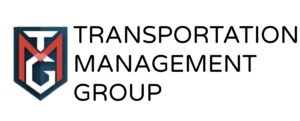Transportation Management Group
Tips for Small Trucking Businesses: Surviving and Thriving
Home / Blog
Tips for Small Trucking Businesses: Surviving and Thriving
- November 17, 2023

In the vast and dynamic world of trucking, small businesses often face unique challenges. From managing operational costs to competing with larger fleets, the journey for small trucking companies is both demanding and rewarding. In this comprehensive blog post, we will explore valuable tips and strategies to help small trucking businesses not only survive but thrive in the competitive landscape of the industry. Whether you’re an owner-operator or managing a small fleet, these insights are designed to empower you with the knowledge and tools needed to navigate challenges and build a resilient and successful trucking enterprise.
Building a Solid Foundation
1. Strategic Business Planning
Before hitting the road, ensure your small trucking business has a well-thought-out business plan. Identify your target market, set realistic financial goals, and outline a roadmap for growth. A clear business plan serves as your guiding document, helping you make informed decisions and stay on course during challenging times.
2. Financial Management
Effective financial management is crucial for small trucking businesses. Keep meticulous records of income and expenses, monitor cash flow, and create a budget that accounts for maintenance, fuel, insurance, and unexpected costs. Regularly review your financial performance to identify areas for improvement and cost-saving opportunities.
Managing Operational Efficiency
3. Invest in Technology
Embrace technology to enhance operational efficiency. Utilize transportation management systems (TMS), route optimization software, and electronic logging devices (ELDs) to streamline logistics, reduce paperwork, and ensure compliance with regulations. Technology not only saves time but also improves accuracy and overall productivity.
4. Regular Vehicle Maintenance
Preventive maintenance is key to keeping your fleet on the road. Establish a routine maintenance schedule for each truck, addressing issues before they become costly repairs. Well-maintained vehicles not only enhance safety but also contribute to fuel efficiency, reducing long-term operational costs.
Navigating Regulatory Compliance
5. Stay Informed on Regulations
The trucking industry is subject to various regulations, and staying informed is crucial. Keep abreast of changes in hours-of-service regulations, safety standards, and environmental requirements. Compliance not only avoids penalties but also contributes to a positive reputation for your business.
6. Invest in Driver Training
Ensuring your drivers are well-trained and compliant with industry regulations is essential. Provide ongoing training on safety measures, new technologies, and any regulatory changes. Well-trained drivers not only reduce the risk of accidents but also contribute to overall operational efficiency.
Establishing Strong Customer Relationships
7. Provide Excellent Customer Service
In the trucking industry, customer relationships are paramount. Strive to provide excellent customer service by delivering shipments on time, maintaining open communication, and addressing customer concerns promptly. Satisfied customers are more likely to become repeat clients and recommend your services to others.
8. Build Partnerships
Forge strategic partnerships with shippers, brokers, and other stakeholders in the supply chain. Establishing strong relationships can lead to consistent business, better freight rates, and collaborative problem-solving. Networking within the industry can open doors to new opportunities and valuable insights.
Adapting to Market Trends
9. Diversify Your Services
To thrive in a competitive market, consider diversifying your services. Explore opportunities such as partial truckload shipments, specialty freight, or last-mile delivery services. Diversification not only expands your revenue streams but also makes your business more resilient to market fluctuations.
10. Embrace Sustainability
In response to growing environmental concerns, consider adopting sustainable practices in your trucking operations. From fuel-efficient technologies to eco-friendly packaging solutions, embracing sustainability can enhance your brand reputation and appeal to environmentally conscious clients.
Surviving and thriving as a small trucking business requires a combination of strategic planning, operational efficiency, regulatory compliance, and a commitment to building strong customer relationships. By investing in technology, prioritizing driver training, and adapting to market trends, small trucking businesses can position themselves for long-term success in the dynamic and competitive transportation industry. Remember, resilience and flexibility are key as you navigate the road ahead. With these tips as your guide, your small trucking business can not only weather challenges but also flourish in the ever-evolving landscape of trucking. Safe travels and prosperous journeys!
